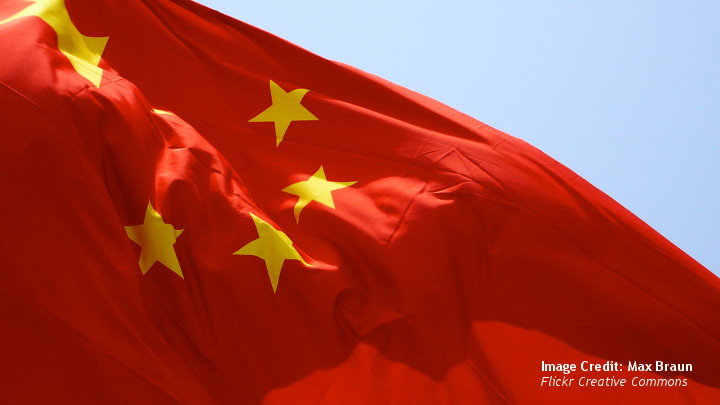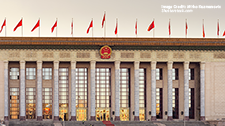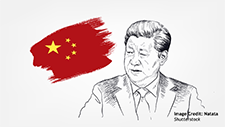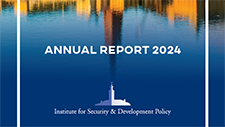The Essence of Xi Jinping’s 20th National Congress Report

Jagannath Panda
Xi’s power-adulterated vision that has already dented economic and political party-state institutional authority is likely to dampen China’s thus-far sweltering rise.
Chinese Communist Party (CCP) General Secretary Xi Jinping’s opening speech at the 20th National Congress maintained the continuity of his existing vision and offered no remarkable surprises. Compared to the widely expected norm-breaking third term for Xi, the only break from tradition was relatively superficial as the Chinese leader read an abridged version of the report. Perhaps he was cognizant of the retired party elders in attendance or, as some have conjectured, wanted to make a show of strength. A shorter summary, therefore, delineated his success in achieving factional consensus.
Amid the sprawling achievements, the few “shortcomings” that Xi listed mainly encompassed imbalances in economic development; food, energy, technological, and economic security drawbacks; ideological lacunae, including a lack of faith in socialism with Chinese characteristics; and corruption. These broad categories reinforce Xi’s security paradigm, where all challenges are treated as a matter of national security and ideology reigns supreme. Xi’s report formulated it in unambiguous terms: “People’s security as our ultimate goal, political security as our fundamental task, economic security as our foundation, military, technological, cultural, and social security as important pillars, and international security as a support.” Thus, the key features of this report should be seen through the lens of the paradigm of security. Considering that the 2022 report is an extension of plans already underway for modernization and rejuvenation, what special significance does it hold for the future of Xi, the CCP, and China?
Beyond Mao: Setting the Stage for Xi’s Preeminence
Expectedly, the mainstay of the report described the CCP’s achievements in pursuing China’s dramatic transformation since Xi came into power a decade ago. The augmented emphasis on Xi’s past two terms as the foundation of China’s continued progress underpinned his logic for staying in power as much as his intention to see through his ultimate goal of “irreversible” national rejuvenation.
Xi has already proclaimed the completion of the first centenary goal, namely, achieving a moderately prosperous society, and reiterated the previously outlined two-step strategic plan (2020-2035 and 2035-2049) to transform China into a great modern socialist country—the second centenary goal. The coming years will therefore witness redoubled efforts toward the latter goal. A large part of this will include the “new era” military endeavors, which will align with the People’s Liberation Army (PLA) modernization goal to be achieved within the next five years.
Related Publications
-
ISDP Annual Report 2023
ISDP’s Annual Report for the year 2023. We look back on 2023, a year in which tensions and conflicts captured the strategic space in ISDP’s focus areas, making headlines around […]
-
The Dangers of a Stagnant China: The Necessity of Awkward Coexistence
Abstract: In the build-up to the 20th Party Congress, a series of essays emerged focusing on Xi Jinping cementing a third term as General Secretary of the Communist Party of […]
-
Will the PLA Pledge Total Allegiance to Xi Jinping?
This article was originally posted on The National Interest’s website, you can find the article here. Xi’s resolute grip on the three most powerful positions in Chinese society has […]
-
ISDP Annual Report 2024
ISDP’s Annual Report for the year 2024. 2024 has been a tumultuous year, in which tensions have been continuously mounting and conflicts have been raging. Many of these developments have […]
-
Challenging Western Views: Understanding Power and Stability in East Asia; An Interview with DAVID C. KANG
Dr. David C. Kang is Maria Crutcher Professor of International Relations at the University of Southern California. A leading expert in East Asian security, international relations, and political economy, Dr. […]




